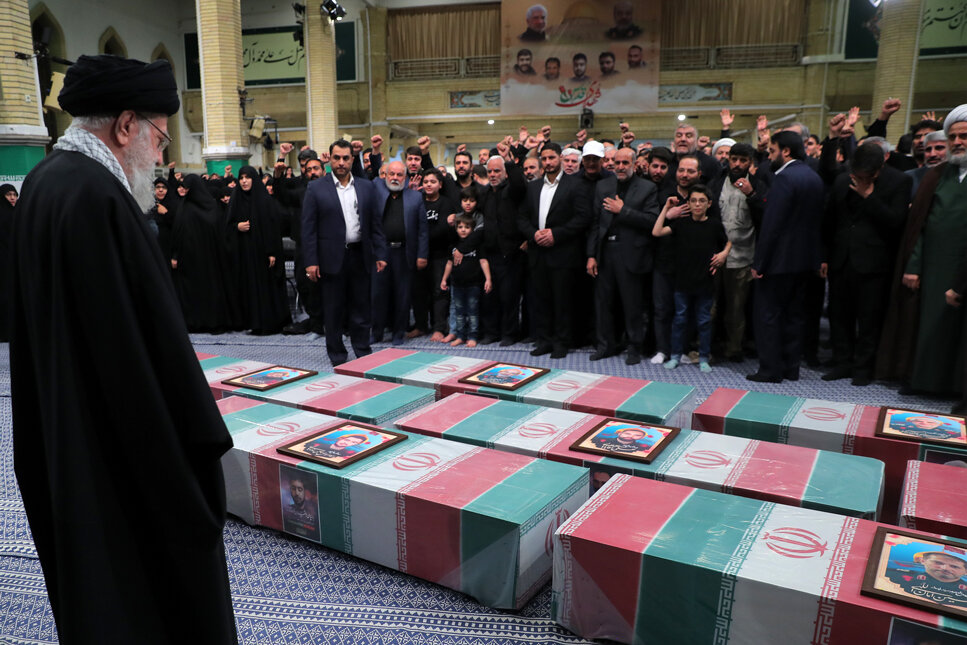“The timing of the response was for the simple reason that the four periods of Jewish holidays which started with Rosh Hashanah on 2 October finished with Simchat Torah on 25 October. They didn’t want to disrupt the Jewish holidays and so they waited and then hit Iran the following day,” according to an Israeli analyst.
“Israel does not want war with Iran,” a Western security source told us. “this was a calculated response to Iran’s calculated attack on 1 October.” According to Arab military sources, Iran had signalled that any significant loss of Iranian lives, or symbolic attacks would be met with a massive escalatory response.
Iranian oil facilities were off the table as targets, according to diplomatic sources. “The Americans don’t want a spike in the oil price 10 days before the election, that’s an unwelcome development for both candidates. Too much uncertainty. Steals the narrative from where they want it.” There are unconfirmed reports circulating that Israel communicated its intention to attack exclusively military targets through channels to Iran.
An Israeli commentator told Field that “Israel could attack Iran’s nuclear program and delay their progress by three, five, ten years, but that’s all it is, a delay. But for the Iranians, the nuclear program is the regime’s prestige and the loss of face would mean that they would have to escalate.”
There is naturally broader regional concern. “The Arabs are clearly spooked that the Israeli campaign against Hizbullah in Lebanon might escalate out of control. Israel had to fly over Iraqi airspace to attack Iran this time, but Jordan and the Gulf allowed the use of their airspace for the previous attack”, a regional diplomatic source told us. “Everyone is concerned where this is going to go next. The Egyptians are concerned by Hamas in Gaza and potential sympathy for the Muslim Brotherhood. The Jordanians are concerned by the fighting in the West Bank having an impact on their stability. The Lebanese don’t want another civil war but feel as though they are being pushed to the brink, again. The Saudis and Gulf are concerned that they are a soft target for Iranian revenge. And no-one knows where the Americans are, or are going to be. There’s no UN, no-one to keep a lid on it all.”
“People sometimes apply Western political thinking to the Middle East. ‘It’s a dictatorship, or a democracy, friend or foe’ type of thing”, a former government Iran watcher told us, “but there’s another alternative – controlled chaos. Look at Syria, it’s broken and no threat to anyone without Iranian support. There are some in Israel who are now thinking that maybe, maybe it’s possible to foment sufficient instability that the Iranian regime has to turn in and spend all of its energy just to maintain control, leaving Israel a free hand to pursue its agenda.”
A Western diplomat in the field added that “Israel has a once in a century opportunity. ‘To make itself safer’, ‘to destroy Iran and its so-called Axis of Resistance’, ‘to expand Israel’s current territory and create Eretz Israel [Greater Israel]’, call it what you will, this Israeli government, which is itself extra-ordinary, can re-draw borders, move millions of people and re-shape the region in a way that it has never had the opportunity to before.”
In Syria, Hizbullah has withdrawn its fighters back to Lebanon and Shia militias from other countries are being sent in to prop up the Assad regime. There is considerable movement behind the scenes in the region which we will report on separately.


